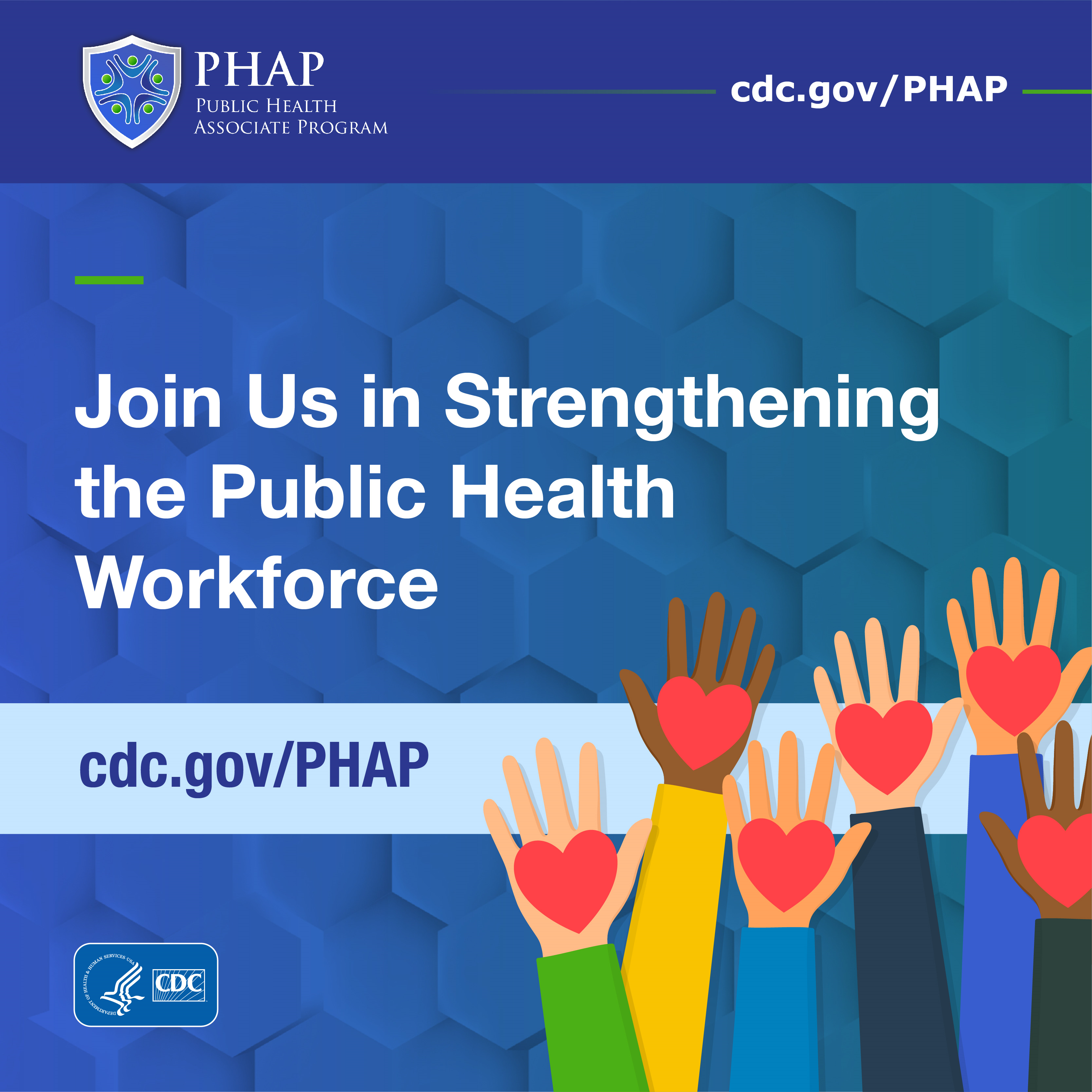 Nakilia Thompson is a Health Communications Associate
at the Public Health Foundation (PHF). As a Public Health Associates Program (PHAP) Associate at the Baltimore
City Health Department in Baltimore, MD, she counseled and monitored people with mpox in Baltimore City as a Case Investigator in 2022.
Nakilia Thompson is a Health Communications Associate
at the Public Health Foundation (PHF). As a Public Health Associates Program (PHAP) Associate at the Baltimore
City Health Department in Baltimore, MD, she counseled and monitored people with mpox in Baltimore City as a Case Investigator in 2022.
Mpox took the world by storm in 2022, ushering in another global public health challenge. Due to the unwavering dedication of healthcare providers,
public health professionals, and community partners, the number of mpox cases
reported daily has drastically reduced. However, with summer winding down, it is crucial for public health and healthcare professionals to remain vigilant to help prevent a future resurgence of mpox cases.
However, with summer winding down, it is crucial for public health and healthcare professionals to remain vigilant to help prevent a future resurgence of mpox cases.
As a case investigator at the Baltimore City Health Department
during Summer 2022, I observed firsthand the impact of mpox on communities.
Many people were affected physically, mentally, emotionally, and financially.
As a case investigator, I observed how people with underlying health
conditions experienced extended isolation periods due to delayed healing of
lesions. Remaining in isolation for two to four weeks caused some people severe financial strain, which often meant experiencing food
shortages, battling depression, and struggling to afford their
bills.
My role required me to build genuine rapport, consistently follow
up with patients to actively monitor symptoms (lesions and pain levels varied
amongst patients, showing that mpox presents itself in numerous forms), and
use the keenest discretion for clearance (observing rashes and other symptoms
to determine if patients can conclude their isolation or quarantine period).
I learned the importance of being thorough while observing images to monitor
progress accurately, establishing a clear communication channel between myself
and patients, and ensuring that sensitive information is kept organized and
confidential.
We must remember the potential severity of mpox and continue to
practice safety throughout the year. Case investigators are on the frontlines and will closely interact with
people who test positive for mpox or have been exposed. It is critical that we all continue to do our part to keep everyone in our communities safe.
From my experience, here are some tips when working with
individuals with mpox:
- Highlighting Prevention - Healthcare providers and public health professionals play a
significant role in identifying effective ways to advise diverse audiences
of preventive measures during a public health crisis. Stay current on the
evolving guidelines from the Centers
for Disease Control and Prevention (CDC) and other governmental public
health agencies to relay accurate information regarding mpox prevention
methods and mpox vaccination.
- Effective Communications - The outpouring of constant communications from healthcare providers and public health professionals to community members is vital for spreading
accurate, timely, and reliable information. A key component in maintaining
the safety of a community is effective messaging. Communications should be
adaptable, creative, and multifaceted. All affected parties, no matter
their language, disability, insurance coverage status, or socioeconomic
status, should have access to these resources.
- Compassion
and Empathy - No
one is exempt from contracting mpox. This virus affects men, women, and
children of all ages. It is essential for healthcare providers and public health professionals to show compassion and empathy when
discussing such a sensitive topic with their counterparts. Although the investigation process may
not always be pleasant, it is critical to remain composed and
understanding. While viewing lesions and outbreaks visually may be
difficult, people directly experiencing mpox are severely impacted
physically and emotionally. The empathy given by healthcare providers and public health
professionals is imperative to the well-being and betterment of each person they serve.
Additional Mpox Resources:
The public health workforce is ever-evolving. If you or someone you know is a recent graduate interested in a public health career, check out the Public Heath Associates Program (PHAP).
